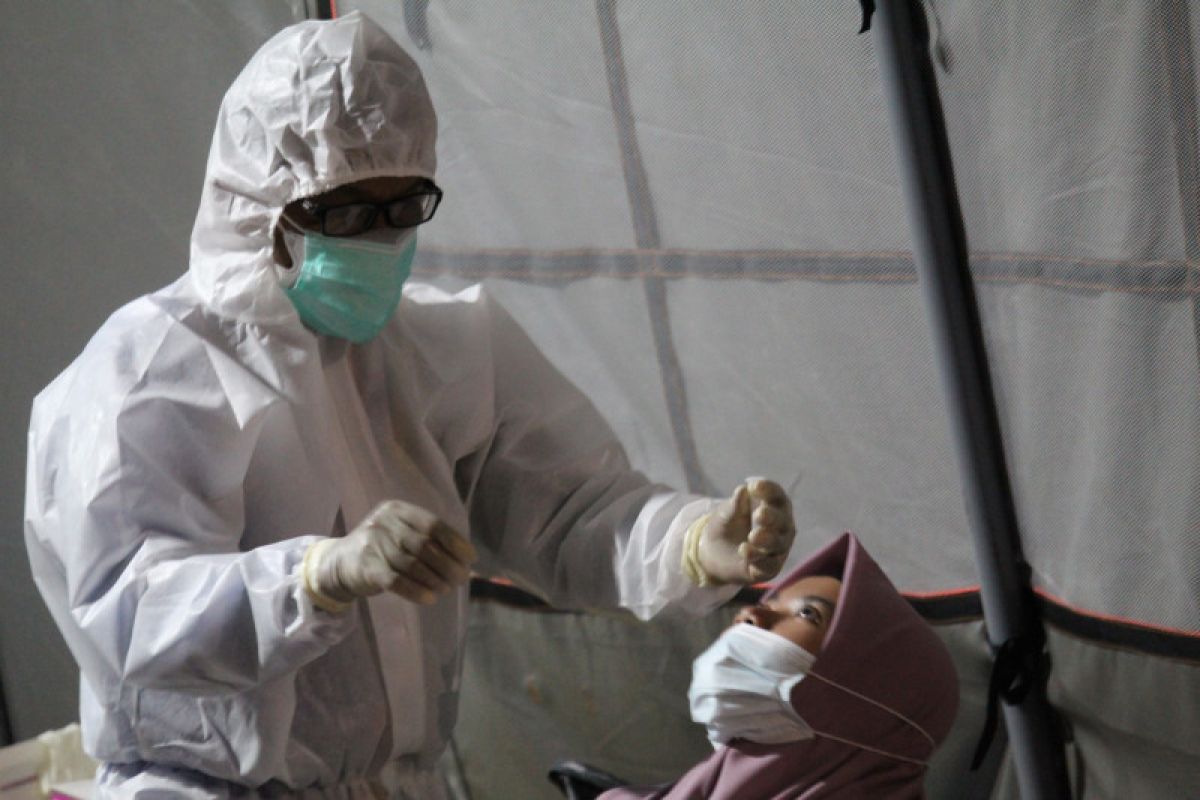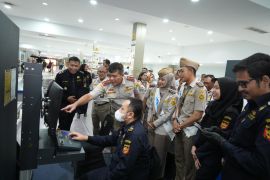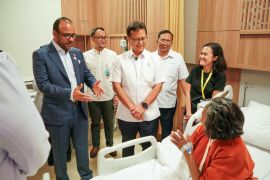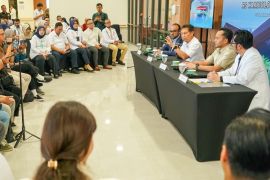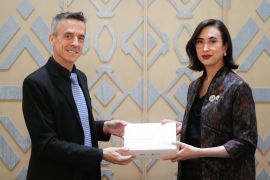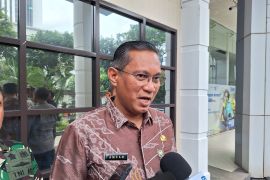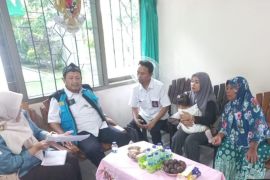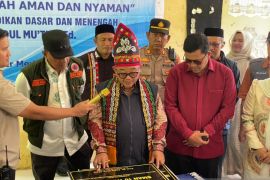By wearing masks, Insya Allah (God willing), we can save our beloved and our elderly parentsBogor, W Java (ANTARA) - It has been over 15 months since President Joko Widodo officially announced the country's first confirmed COVID-19 cases on March 2, 2020.
Over the past two months, the battle against the virus has become tougher due to a significant rise in daily cases, which the Indonesian health authorities believe has been triggered by the more contagious COVID-19 Delta variant.
On July 14, 2021, Indonesia' daily increase in COVID-19 infections was recorded at 54,517. The positivity rate tends to have decreased and it reached 22.29 percent on July 25, 2021.
Indonesia added 45,203 cases in a single day as of Tuesday noon (July 27, 2021), bringing the total tally to 3,239,936, according to government data.
At least 2,596,820 of the 3,239,936 COVID-19 patients in the country have fully recovered from the infection, while 86,835 others have succumbed to the deadly virus, including 2,069 patients who died of COVID-19 in the 24 hours ended Tuesday.
Pointing to the fatalities, Jakarta Governor Anies Baswedan has repeatedly reminded the public that the death toll is not just a figure.
Related news: World has spent US$11 trillion on COVID-19: Finance Minister
Instead, it reflects the misery and sadness of so many people and families in the country who have lost their loved ones to COVID-19, he said.
Those who have succumbed to the coronavirus so far include the country's well-educated and highly-skilled citizens, including doctors, health workers, school teachers, as well as teaching staff and scientists at universities.
According to the Indonesian Medical Association (IDI), as of July 17, 2021, 545 doctors have died of COVID-19 in the country.
East Java, Jakarta, Central Java, West Java, and North Sumatra have accounted for a relatively-high number of COVID-19 fatalities among doctors, IDI said.
East Java has lost 110 doctors, while the provinces of Jakarta, Central Java, East Java, and North Sumatra have lost 83, 81, 76, and 38 doctors, respectively, it revealed.
Related news: Cases decrease, but pandemic not over yet: Governor Baswedan
The novel coronavirus disease, which has sparked a global pandemic since last year, has forced the governments of countries across the globe to work hard to save the lives of citizens and revive their economies.
Indonesian Finance Minister Sri Mulyani Indrawati has predicted that countries across the world have spent more than US$11 trillion from their budgets to deal with the impact of the COVID-19 pandemic.
"The world has allocated more than US$11 trillion. All countries use their resources to protect their people," she told participants at an online discussion that she joined from Jakarta on Tuesday.
No country has been spared the threat of COVID-19 because of the virus' dynamic nature that allows it to continue to mutate and transmit, causing the infection rate to rise, Indrawati said.
Given its tremendous impact on public health, economy, and the social life of communities, what can Indonesians do to assist the government's COVID-19 prevention and mitigation efforts?
Indonesian Military (TNI) commander, Air Chief Marshal Hadi Tjahjanto, has appealed to Indonesians to make mask wearing and self-isolation a habit to help fight COVID-19.
The importance of wearing masks has also been highlighted by the dean of the University of Indonesia's School of Medicine, Professor Ari Fahrial Syam.
Syam has even urged Indonesians to wear masks whenever they meet their elderly parents to protect them from COVID-19.
The higher risk of COVID-19 infection among older adults has been confirmed by the outcome of a joint research conducted last year by the School of Medicine and Jakarta's Health Office, he said recently.
According to the findings of the published research, aging, shortness of breath, pneumonia, and hypertension are related to the risk of death, he said, adding that older adults contracting COVID-19 are at a higher risk of death.
The outcome of the research project, which involved 4,052 COVID-19 patients in Jakarta, showed that the percentage of coronavirus deaths rose as the age of the patients increased, Syam informed.
The fatality rate among adults aged 70 years or more was recorded at 30.11 percent, while it stood at 14.7 percent and 3.38 percent, respectively, for people in the 50-69 and 20-49 age groups, he said.
Related news: COVID-19 cases on the rise outside Java: IDI
The findings convey an important message that must be kept in mind, he remarked.
"If our elderly parents keep staying at home, but they still get infected, they must have gotten it from those around them who still do outdoor activities," Syam said.
To protect older adults, including elderly parents staying at home, from the higher risk of COVID-19 infection, wearing of masks must become a regular habit, he added.
"By wearing masks, Insya Allah (God willing), we can save our beloved and our elderly parents," said the dean, who obtained his master's degree from the University of Queensland and PhD from the University of Indonesia.
Related news: IDI urges civil society to support healthcare workers
Related news: Domestic travelers' vaccine card mandated in level 3, 4 areas
Editor: Fardah Assegaf
Copyright © ANTARA 2021
